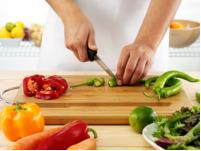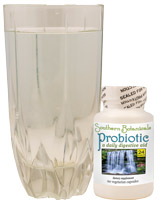
|
|
|
Health Freedom Resources

|
Recommendations for a Healthy Diet and to Eliminate Constipation

Some Good Foods to Eat During and/or After a Cleanse:
You get the idea? Eat Fruits and Vegetables with all your meals and in between! Eat high-water content foods.
Some Foods to Avoid:
Dry, hard or sticky, greasy foods, and fiberless proteins (meats and dairy) can clog up your system. Reduce these low-water fiberless foods and increase high-water, high-fiber vegetables and fruits for an easier time! Cleansing with herbs will create a better internal environment and is valuable no matter what you are eating, but for those who can - eliminating the foods to avoid temporarily while cleansing will help cleanse more deeply.x Foods that are over-cooked, or which contain processed and artificial ingredients will leave your body starving for nutrients. Result: You will feel hungrier the next day when your body has tried to absorb the non-nutrition and comes up empty or clogged. You'll want to eat even more, trying to get something that really "sticks to the ribs!". The solution is to eat real food, unprocessed slow food, a good mix of plentiful fresh plant foods and natural protein foods of your choice (plant and/or animal), along with some healthy fats. You will start feeling satisfied from eating, because your body can utilize the nutrients and is able to function better. A good rule of thumb for any meal is to eat 3/4 plate of cooked and/or raw vegetables and 1/4 plate of proteins. Another choice is to eat 1/2 plate of vegetables, 1/4 plate of proteins, and 1/4 plate of fruit or natural starches (like sweet potatoes) or whole grains. Eventually you will build up regular energy and regular bowel movements that won't be stopped by an occasional lapse. You can develop an instinct for eating, so you'll reach for more high-water fiber nutrient-dense foods to round out what you eat.
Note: For patients with other problems that might cause constipation, such as molds or fungus, stress or medications, Intestinal Cleansing and a good diet will keep the bowels moving and the patient more comfortable with less toxic back up, until a proper resolution to the other problem is found and implemented. Note on Constipation in Pregnant Women and Intestinal Cleanse #1: Any types of laxatives, herbal or otherwise, are not recommended for the treatment of constipation during pregnancy because they might stimulate uterine contractions. Intestinal Cleanse #1 increases peristalsis and might stimulate contractions in the uterus as well. Therefore, it is not for use by pregnant women. The above diet is a good one to follow during pregnancy to alleviate constipation which commonly occurs during pregnancy. You may like to add some super green food nutrition in the form of Vital Nutrition Plus whole food supplement to your prenatal and postnatal diet. Get more energy for you, and powerhouse building-block materials for a healthy baby. Also ask your doctor about reducing or eliminating iron supplements: Iron supplements may contribute to constipation. Good nutrition can often meet your iron needs during pregnancy. Animal sources of iron such as eggs, fish, poultry and beef are more readily absorbed than vegetarian sources. Also taking smaller doses of iron supplements throughout the day rather than taking it all at once can reduce constipation. But be aware that iron supplements tend to destroy Vitamin E when the two are taken together. Talk to your health care practitioner about checking your iron levels and recommendations to manage iron intake during pregnancy. See also What To Eat? The Big Question... |
||
Copyright 2009-2025 Southern Botanicals Herbals & Nutrition, Inc
Southern Botanicals Herbals & Nutrition
611 S Myrtle Ave # D, Clearwater, FL 33756
(727) 443-7711

![]()